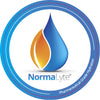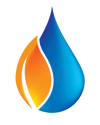Eating Disorders and POTS: A Correlation

Eating Disorders and POTS: A Correlation

In the world of dysautonomia, you may know that there are comorbidities that can exist for varying disease states. For instance, if you have POTS there’s a large chance you also have Ehlers-Danlos Syndrome, or EDS. According to this study published in 2020, approximately 31% of POTS patients also met the criteria for hEDS while an additional 24% met the criteria for generalized joint hypermobility.
EDS is a group of inherited connective disorders that affect your skin, joints, and more. POTS, or postural orthostatic tachycardia syndrome, is a blood circulation problem that causes a myriad of symptoms including rapid heart rate. More on this relationship in a later blog.
There’s a correlation between these two diseases. Many conditions often go together, called comorbidities, and are not well understood. POTS, while not exactly “new” is still under researched and in general not very well understood in the medical community.
Eating Disorders and POTS
Let’s talk about the correlation between eating disorders and POTS as this topic has recently been making waves in the POTS community.
Eating disorders are classified as a group of serious mental and physical illnesses that can affect any living person. No one knows for sure what causes these disorders, but according to NEDA, the National Eating Disorder Association, it is suspected that biology, society, and psychological factors are at play. Now that we have defined what eating disorders are, let’s talk about how it relates to POTS.
A study was published in May 2021 discusses the connection between eating disorders and POTS. In that study, it was found that nearly three quarters of participants were found to engage in restricted eating and more than half of them reported weight loss. Not surprisingly, many also talked about gluten intolerances and chronic allergies that may have been Mast Cell Activation Syndrome (another comorbidity of POTS). With a myriad of issues affecting the average POTS patient, it’s no surprise that there is restrictive eating.
Correlation Does Not Mean Causation
The previously mentioned published study was an interesting look at the world of eating disorders and how it can affect patients with POTS. Most POTS patients meet the typical demographic affected by eating disorders; females in their teens or young adults. One of the first things that patients with POTS come to understand is that their diet needs to be monitored and certain changes need to happen to manage their symptoms.
It’s important to know that just because there’s a correlation between POTS and eating disorders, it does not mean that POTS has caused (or will cause) an eating disorder in you. Currently, there is little research into the relationship between the two conditions. In general, we know that people with all disabilities have stressors that can lead to the development of eating disorders. With less data on the subject, it’s almost impossible to narrow down the cause.
What Can I Do?
Knowledge is power. Keep an eye on what you’re eating, ensuring that you’re getting proper nutrition along with keeping your sodium intake up. If you suspect you may have an eating disorder, talk to your doctor or psychologist.








My daughter has battled her way to 19 years old. Life is hard with POTS, hEDS, Autism, ARFID, depression, anxiety and more. And today I learned of MCAS. So proud of her – strongest girl ever!
I have been diagnosed with POTS for a few years. I have some control over my symptoms but still have flares that really get me down. I read everything I can and stay in touch with my NP who is open to learning as well.
Great point! The link between POTS, EDS, and neurodivergence is something many in the dysautonomia community have noticed. With these conditions often overlapping, more research is definitely needed. In the meantime, managing POTS symptoms with proper hydration for POTS and a high-quality electrolyte powder for POTS patients, like NormaLyte, can help support daily function. Thanks for sharing your insight!
I think the connection lies with other diseases this two share territory with. There is high comorbidity between EDS and POTS; people with EDS are more likely to be neurodivergent; the rates of eating disorders are much higher amongst neurodivergent people.
Char – I’m really sorry to hear that you’re still struggling with POTS symptoms, especially after overcoming atypical anorexia. It can be incredibly frustrating when doctors dismiss symptoms as anxiety, especially when it’s clear there’s more going on. POTS is complex, and many people with dysautonomia feel their symptoms are misunderstood, particularly when they have a history of an eating disorder.
It’s great that you’re continuing to advocate for yourself. POTS symptoms like fatigue, dizziness, and heart rate fluctuations are very real and require specific treatment, including hydration and electrolyte balance. Many in the POTS community find that electrolyte powders for POTS patients, like NormaLyte, help with rehydration for POTS by replenishing sodium and other electrolytes, which can support blood volume regulation and alleviate symptoms.
Keep pushing for the care you need—you’re not alone in this journey. Have you found any strategies that help manage your symptoms in the meantime?
Leave a comment